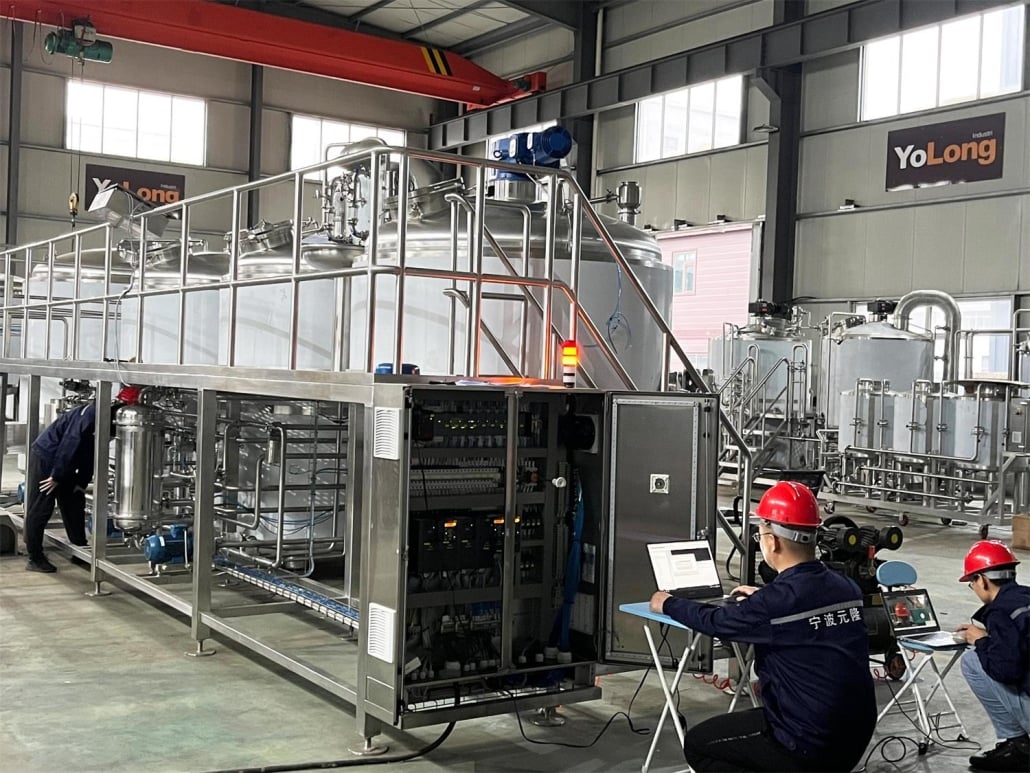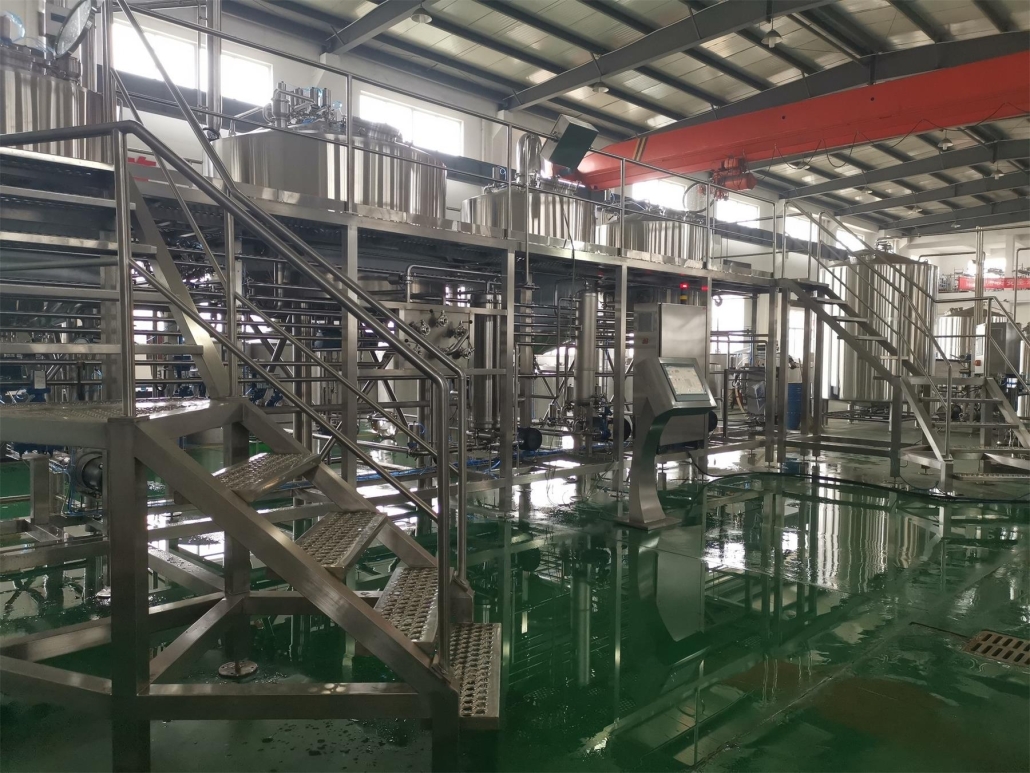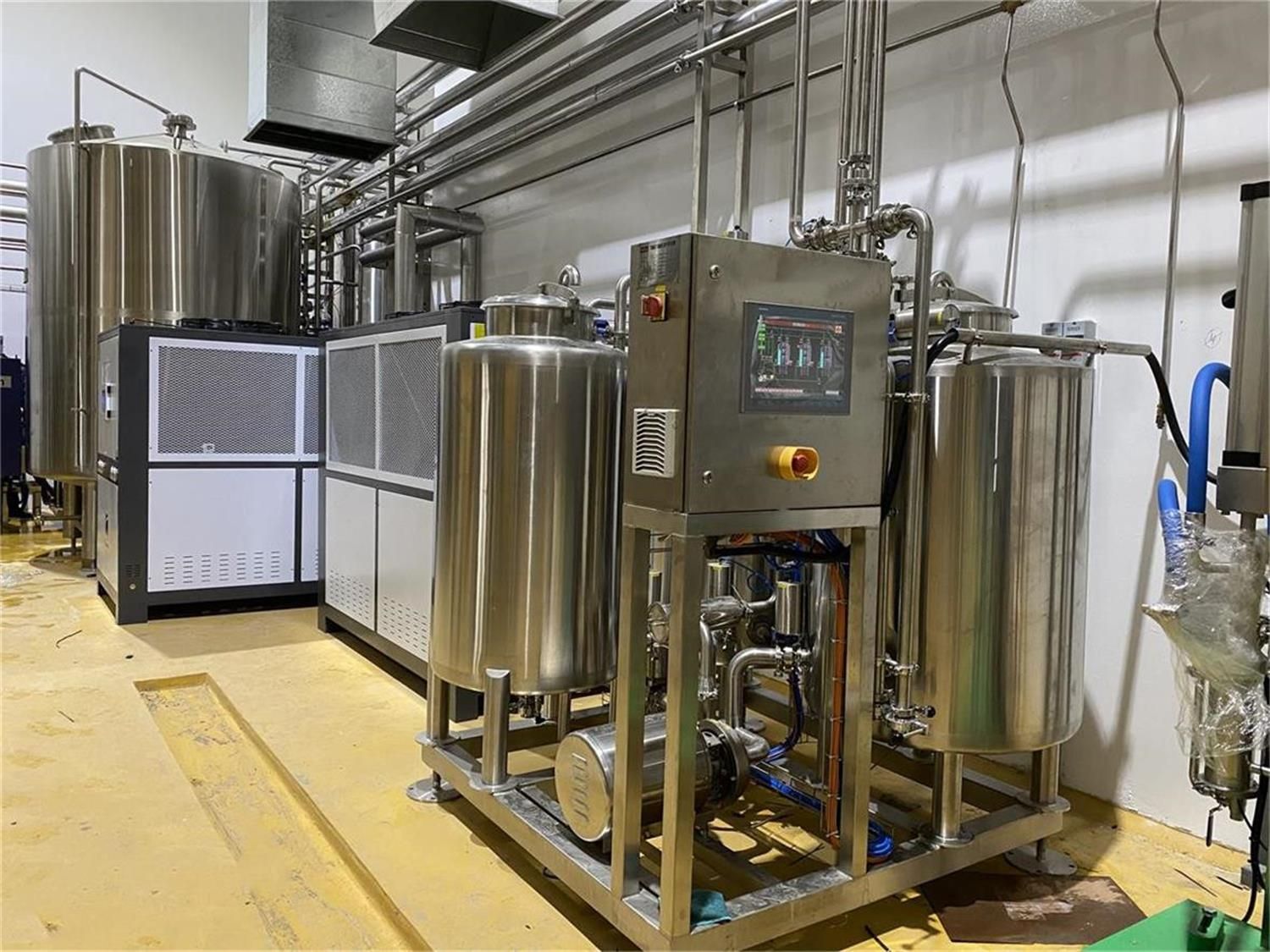Conical Fermenters for sale
the Secrets to Crystal-Clear Craft Beer
Have you ever dreamt of brewing beer that rivals your favorite craft brewery? For many homebrewers, achieving that coveted level of clarity consistently can feel like an elusive dream. But fear not, because conical fermenters are here to revolutionize your homebrew game!
This guide dives deep into the world of conical fermenters, exploring their impact on the brewing process, the different types available, and the key factors to consider when selecting the perfect one for your needs. We’ll also answer frequently asked questions to ensure you’re fermentation journey is smooth sailing.
What is a Conical Fermenter?
A conical fermenter, also sometimes referred to as a unitank fermenter, is a cylindrical vessel with a cone-shaped bottom. This distinctive design plays a crucial role in yeast management and optimizes the fermentation process for brewers of all levels.
How Does a Conical Fermenter Work?
During fermentation, yeast converts wort (unfermented beer) into beer by consuming sugars and producing alcohol and carbon dioxide. As yeast performs its magic, it also generates spent yeast cells and hop particles that sink to the bottom of the fermenter due to gravity.
In a traditional cylindrical fermenter, this sediment disperses throughout the beer, making it challenging to siphon off clear beer for bottling or kegging. This is where the magic of the conical fermenter comes in!
The cone-shaped bottom of a conical fermenter acts as a collection point for yeast sediment and hop particles. This facilitates a cleaner separation between the beer and the sediment, allowing you to easily extract crystal-clear beer for bottling or kegging without disturbing the settled yeast.

Features of Conical Fermenters
Here’s a closer look at some of the key features that make conical fermenters a favorite among homebrewers:
- Clearer Beer: The conical design promotes superior yeast and sediment separation, resulting in crystal-clear beer that looks professional and polished.
- Easier Transfer: The conical bottom concentrates the sediment in a central location, allowing for easier siphoning of yeast-free beer without the risk of transferring unwanted sediment.
- Yeast Harvesting: Many conical fermenters come equipped with a dump valve located at the lowest point of the cone. This makes it convenient to harvest healthy yeast for future batches, reducing costs and promoting consistency in your brews.
- Temperature Control: Some conical fermenters are jacketed, meaning they have a double wall that can be filled with glycol or water for precise temperature control. This feature is particularly beneficial for brewing lagers and other styles that require specific fermentation temperatures.
- Multiple Uses: Conical fermenters can be used for fermenting a wide variety of beverages beyond beer, including cider, mead, and wine.
Types of Conical Fermenters
Conical fermenters come in a variety of shapes, sizes, and materials to suit the needs and budget of every homebrewer:
| Type | Material | Pros | Cons |
|---|---|---|---|
| Stainless Steel | High-grade stainless steel | Durable, easy to clean and sanitize, long lifespan | More expensive compared to plastic options |
| PET Plastic | Food-grade PET plastic | Lightweight, affordable, transparent allows for monitoring fermentation process | May be prone to scratches and may not be suitable for high-pressure applications |
| Pressure-Capable Plastic | High-density, pressure-rated PET plastic | Affordable, lightweight, transparent, allows for closed-transfer fermentation and carbonation | May not be as durable as stainless steel |
Choosing the Right Conical Fermenter
Selecting the perfect conical fermenter requires careful consideration of several factors:
Capacity:
- Consider the typical batch size you brew. Conical fermenters range in size from a few gallons up to hundreds of gallons. A good rule of thumb is to choose a fermenter that holds at least 20% more volume than your typical batch size to allow for headspace during fermentation.
Space:
- Measure your available brewing space to ensure the fermenter will fit comfortably. Don’t forget to factor in headspace and clearance for hoses and other equipment.
Material:
- Stainless Steel: The most durable and long-lasting option, offering excellent temperature control and ease of cleaning. However, stainless steel conical fermenters carry a higher price tag.
- PET Plastic: A budget-friendly choice that’s lightweight and transparent, allowing you to visually monitor your fermentation. However, PET plastic may be more prone to scratches and may not be suitable for high-pressure applications.
- Pressure-Capable Plastic: A good compromise between affordability and functionality. These fermenters are lightweight, transparent, and allow for closed-transfer fermentation and carbonation under pressure. They may not be quite as durable as stainless steel but offer greater versatility than standard PET plastic.
Features:
- Jacketing: If precise temperature control is important for your brewing style, consider a jacketed conical fermenter. This feature allows for circulation of glycol or water to maintain consistent fermentation temperatures.
- Dump Valve: A dump valve located at the lowest point of the cone facilitates easy harvesting of yeast for reuse in future batches.
- Accessories: Many conical fermenters can be outfitted with additional accessories such as thermowells, sample ports, and pressure gauges, depending on your needs and preferences.
Cost:
- Conical fermenters range in price depending on size, material, and features. Expect to pay between $150 and $3,000 or more for a high-end jacketed stainless steel fermenter.
Supplier Selection
Here are some factors to consider when choosing a supplier for your conical fermenter:
- Reputation: Research the supplier’s online reputation and read customer reviews to get a sense of their quality, customer service, and warranty policies.
- Selection: Choose a supplier that offers a variety of conical fermenters to suit your needs and budget.
- Price: Compare prices from different suppliers to ensure you’re getting the best value for your money.
- Customer Service: Look for a supplier with responsive customer service in case you have any questions or need assistance after your purchase.
Conical Fermenters: Pros and Cons
Pros:
- Crystal-Clear Beer: Superior yeast and sediment separation produces brilliantly clear beer.
- Easier Transfer: The conical design simplifies siphoning of clear beer without disturbing sediment.
- Yeast Harvesting: Harvest healthy yeast for reuse in future batches, saving money and promoting consistency.
- Temperature Control: Jacketed conical fermenters enable precise temperature control for optimal fermentation conditions.
- Multiple Uses: Ferment a wide variety of beverages beyond beer, including cider, mead, and wine.
Cons:
- Cost: Conical fermenters can be significantly more expensive than traditional cylindrical fermenters.
- Size: The conical design requires more vertical space compared to cylindrical fermenters.
- Cleaning: Cleaning the narrow cone may require specialized brushes or techniques.

FAQ
Q: How much headspace do I need in my conical fermenter?
A: Allow for at least 20% headspace to accommodate foam and carbon dioxide production during fermentation.
Q: Can I use a conical fermenter for fermentation under pressure?
A: The suitability for pressure depends on the material and pressure rating of your conical fermenter. Ensure your fermenter is pressure-rated if you plan to carbonate your beer within the fermenter.
Q: How do I clean a conical fermenter?
A: The cleaning process is similar to cleaning any fermenter. Disassemble all removable parts and wash them thoroughly with warm water and a non-abrasive brewing cleanser. You can use brushes specifically designed for cleaning conical fermenters to reach the narrow cone area. For a more thorough clean, you can fill the fermenter with a cleaning solution and circulate it through the pump (if your fermenter has one) for a designated sanitizing period. Always rinse thoroughly with clean water and sanitize all surfaces before reusing the fermenter.
Q: What are some reputable suppliers of conical fermenters?
A: Here are a few well-regarded suppliers to get you started, but it’s always wise to conduct your own research to find the best fit for your needs:
- Northern Brewer: Offers a wide selection of conical fermenters in various sizes, materials, and price ranges.
- Brewer’s Hardware: Known for high-quality brewing equipment, including a good selection of conical fermenters.
- Adventures in Homebrewing: Provides a variety of conical fermenters along with educational resources and helpful customer service.
- Millstone: Carries jacketed conical fermenters for those seeking precise temperature control.
- Homebrew Shops: Many local homebrew shops also carry conical fermenters and can offer personalized recommendations.
Beyond the Basics: Advanced Conical Fermenter Techniques
Once you’ve mastered the fundamentals of using a conical fermenter, you can explore more advanced techniques to further elevate your homebrewing game:
- Closed-Transfer Fermentation: Transfer your wort from the kettle directly into a sealed conical fermenter purged with CO2. This minimizes oxidation and reduces the risk of contamination. Pressure-rated conical fermenters are necessary for this technique.
- Pressure Fermentation: Ferment certain beer styles, such as Kölsch or Altbier, under low pressure. This can contribute to a smoother mouthfeel and reduced diacetyl production (a buttery flavor). Again, a pressure-rated conical fermenter is required.
- Dry Hopping: Add hops to the fermenter during dry hopping for enhanced hop aroma and flavor without the bitterness associated with hop additions during the boil. The conical design facilitates easier removal of spent hops after dry hopping.
Conclusion
Conical fermenters are a game-changer for homebrewers who aspire to produce crystal-clear, professional-quality beer. While the initial investment may be higher compared to traditional fermenters, the benefits in terms of clarity, yeast management, and versatility make conical fermenters a worthwhile investment for any serious homebrewer.
Share this entry
Interested in learning more about Brewing Systems including additional details and pricing information? Please use the form below to contact us!
YOLONG BREWERY EQUIPMENT FAQS
- Commercial Brewery / Craft Brewery / Microbrewery / Nanobrewery
- What is The Difference Between Craft Beer and Industrial Beer?
- The Bespoke Differences In Custom Brewing Systems
- Everything You Need to Know About Kettle Souring
- How to Choose Brewing Equipment for Your business?
- How To Choose The-Best Partner To Build Your Commercial Microbrewing System?
- Two Detection Sensors That You Need To Use In Your Brewhouse System
- Remote Control Applications in Brewing Equipment/How does it work?
- How To Clean Your Brand New Brewery Tanks?

